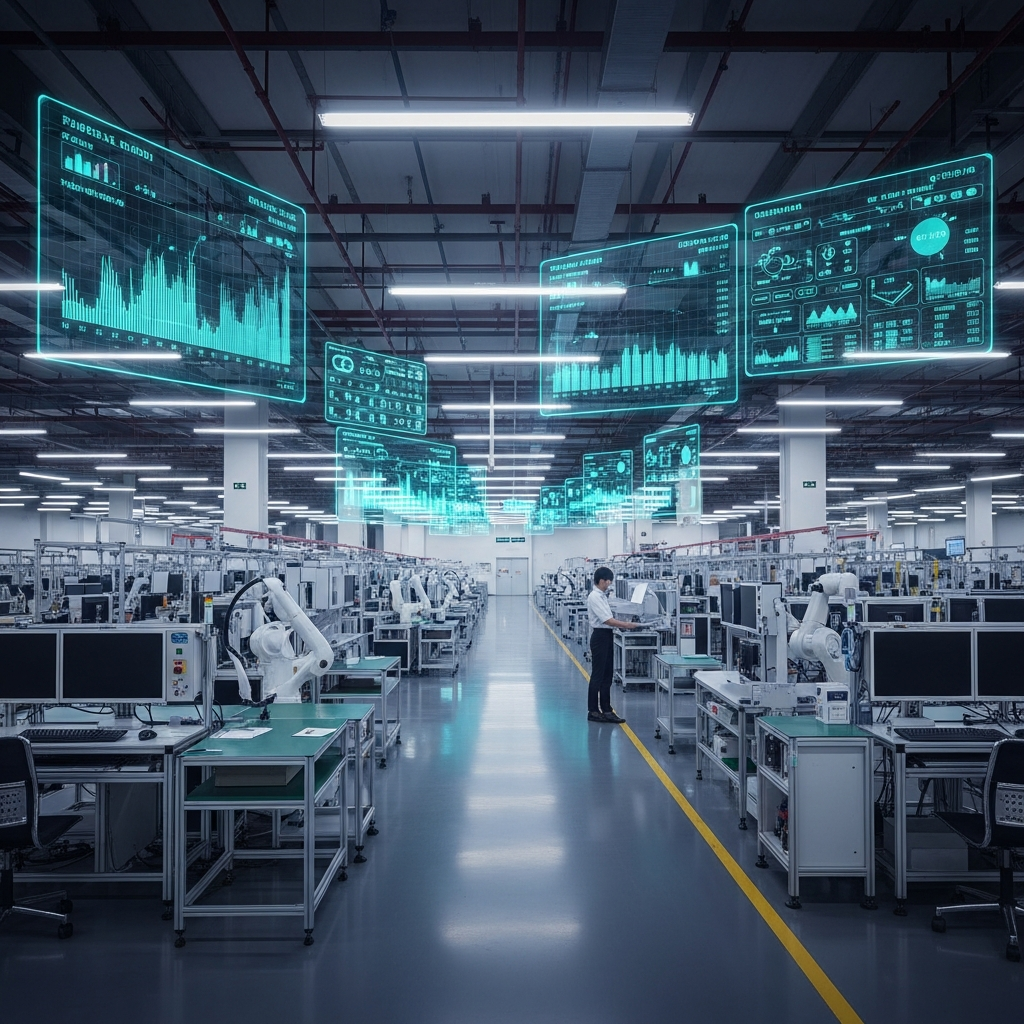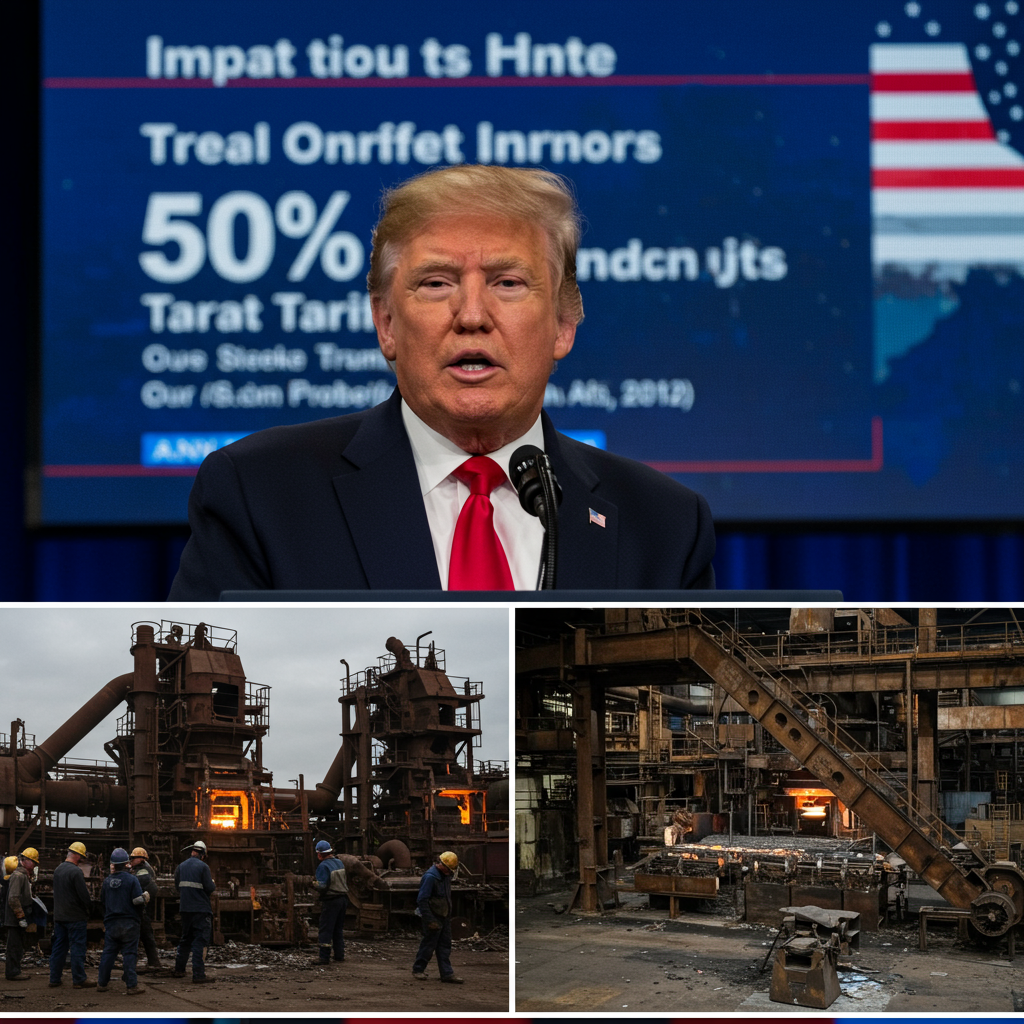Intel shares faced immediate pressure Thursday after former President Donald Trump publicly demanded the immediate resignation of its CEO, Lip-Bu Tan. Trump’s social media declaration cited perceived conflicts of interest. This high-stakes call followed mounting scrutiny from a key U.S. senator regarding Tan’s extensive financial ties to Chinese entities. The controversy spotlights a complex intersection of corporate leadership, national security, and global semiconductor competition, sending ripples through the tech industry.
Trump’s Shock Demand and Intel’s Plummeting Stock
On Thursday, President Trump took to Truth Social, unequivocally stating that Intel Chief Executive Lip-Bu Tan “is highly CONFLICTED and must resign, immediately. There is no other solution to this problem.” This bold demand, unusual for a former president targeting a private sector leader, triggered an immediate market reaction. Intel’s stock dipped 5% in premarket trading. By midday, shares were still down over 3.5%, reflecting investor unease.
The public outcry from Trump did not emerge in isolation. It intensified an already simmering controversy surrounding Tan’s leadership. Just two days prior, Senator Tom Cotton (R-Ark.) dispatched a pointed letter to Intel’s board chair. Cotton’s communication voiced “concern about the security and integrity of Intel’s operations and its potential impact on U.S. national security.” This legislative scrutiny laid the groundwork for Trump’s subsequent, more forceful intervention.
Unraveling the Allegations: China Ties and Past Controversies
At the heart of the conflict are Lip-Bu Tan’s alleged deep connections to Chinese companies. Senator Cotton’s letter and a Reuters report from April detailed Tan’s significant investments. These included holdings, either direct or through his venture capital firm Walden International, in hundreds of Chinese firms. Notably, some of these entities are reportedly linked to the Chinese Communist Party (CCP) and even the People’s Liberation Army (PLA).
One specific instance highlighted by critics is Tan’s prior role as CEO of Cadence Design Systems. He led Cadence until 2021 and served as executive chairman until 2023. Under his tenure, Cadence Design Systems faced a criminal case for illegally exporting technology. The company pleaded guilty to charges of selling semiconductor design tools and other intellectual property to a Chinese military university. This institution was reportedly involved in simulating nuclear blasts. Cadence settled these charges last month, agreeing to pay a substantial $118 million criminal penalty.
Walden International, Tan’s venture capital firm, also invested in other controversial Chinese companies. These include Semiconductor Manufacturing International Corp (SMIC), China’s largest chip foundry, where Tan was an investor and board member until 2018. SMIC was sanctioned by the U.S. in 2020 due to its military ties, prompting Tan to divest his investment in 2021. Another joint investment was in Intellifusion, a surveillance company blacklisted by the U.S. Department of Commerce in 2020 over alleged human rights abuses. While U.S. law doesn’t broadly prohibit stakes in Chinese firms, it bans investments in companies on the Treasury Department’s Chinese Military-Industrial Complex Companies list. Reuters noted Tan had not directly invested in firms on this specific prohibited list.
Intel’s Strategic Turnaround Under Scrutiny
Lip-Bu Tan’s appointment as Intel CEO in March 2025 was initially met with optimism. He replaced Pat Gelsinger during a challenging period marked by declining sales and market share losses. Tan, widely regarded as a “legend in the semi industry,” was seen as a promising candidate to revitalize the struggling chipmaker. His appointment, marking the first time an outsider led Intel, even saw the stock surge up to 15% immediately.
However, the road to recovery has been bumpy. Intel recently announced several spending cuts and a significant workforce reduction. The company plans to cut 25,000 jobs this year. Its costly foundry division, which produces chips for other companies, suffered an operating loss of $3.17 billion. Tan’s strategy includes canceling planned fab projects in Germany and Poland and consolidating testing operations in Vietnam and Malaysia. Intel also intends to slow construction of a crucial chip factory in Ohio. Adding to the woes, Intel recently abandoned plans to make its advanced 18A manufacturing process technology available to external customers. Analysts had considered this vital for its turnaround.
The CHIPS Act and National Security Implications
The controversy surrounding Tan’s ties is amplified by Intel’s crucial role in U.S. national security and its receipt of substantial federal funding. Intel is the largest U.S. chipmaker and a significant beneficiary of the 2022 CHIPS and Science Act. The company secured an approximately $8 billion grant under this legislation. The CHIPS Act aims to bolster American chip manufacturing and reduce dependence on foreign production, positioning it as a national security imperative.
Senator Cotton explicitly emphasized this point. He wrote that “Intel is required to be a responsible steward of American taxpayer dollars and to comply with applicable security regulations.” Cotton directly questioned Tan’s ability to fulfill these obligations given his alleged associations. The situation underscores the U.S. government’s push for secure domestic supply chains. It also highlights the heightened scrutiny faced by companies receiving public funds amidst geopolitical tensions.
Broader Political and Industry Reactions
Trump’s demand quickly garnered support from other prominent Republican senators, including Bernie Moreno of Ohio and Rick Scott of Florida. A White House official, speaking to Business Insider, affirmed the administration’s commitment to safeguarding national security. They stressed the importance of trustworthy leadership in critical American sectors. This collective political pressure adds another layer of complexity to Intel’s already challenging environment.
Interestingly, Trump’s call for Tan’s resignation came just a day after he threatened a 100% tariff on imported semiconductors. While such tariffs could ostensibly benefit U.S.-based chipmakers like Intel, his criticism of Tan suggests a more nuanced, and perhaps contradictory, approach. Trump has advocated for scrapping the CHIPS Act, arguing that tariffs are a more effective incentive for domestic production. He cited TSMC’s expanded investments in Arizona as an example of tariffs’ efficacy.
Intel responded to earlier inquiries by Reuters in April, stating it “handle[s] any potential conflicts appropriately and provide[s] disclosures as required by SEC rules.” The company affirmed that Tan had completed required conflict of interest questionnaires. Following Senator Cotton’s concerns, Intel issued a statement affirming its and Tan’s “deep commitment to the national security of the United States.” The company also expressed readiness to address these matters with the senator. Despite these assurances, the political and public relations challenges remain significant.
Industry analysts acknowledge Tan’s broad ties, both in and outside China, are “well known.” However, one Bernstein analyst noted that his China connections are now “seemingly creating an increasingly bad look” given the current political climate. The analyst also uniquely pointed out that Tan appears not to have cultivated the personal relationship with Trump that might have diffused such ire, unlike some other prominent tech CEOs. The situation remains fluid, posing a considerable governance challenge for Intel’s board and leadership team.
Frequently Asked Questions
What are the core accusations against Intel CEO Lip-Bu Tan?
The primary accusations against Intel CEO Lip-Bu Tan, stemming from former President Trump and Senator Tom Cotton, center on alleged conflicts of interest due to extensive financial ties to Chinese companies. Critics highlight his investments, directly and through his venture capital firm Walden International, in numerous Chinese entities, some reportedly linked to the Chinese military. Furthermore, concerns are raised about his past leadership at Cadence Design Systems, which pleaded guilty to illegally exporting technology to a Chinese military university and paid a significant fine. These associations, according to critics, compromise Intel’s position as a recipient of U.S. taxpayer dollars and its role in national security.
How does this controversy impact Intel’s strategic turnaround and U.S. chipmaking efforts?
This controversy introduces significant volatility and uncertainty to Intel’s ongoing strategic turnaround. The immediate impact was a notable dip in Intel’s stock price, signaling investor apprehension. Politically, it raises questions about Intel’s ability to be a “responsible steward of American taxpayer dollars,” particularly concerning the approximately $8 billion grant it received under the U.S. CHIPS and Science Act. While Intel is already grappling with financial challenges, including losses in its foundry division, workforce reductions, and project cancellations (like fabs in Germany and Poland), this high-profile political pressure adds another layer of complexity, potentially complicating its efforts to restore market leadership and secure its role in bolstering domestic semiconductor manufacturing.
What is the broader significance of political intervention in a major U.S. tech company like Intel?
The public demand for Intel’s CEO to resign by a former president is highly unusual for a non-governmental company. While there are historical precedents, such as President Obama’s intervention in General Motors during a government bailout, Trump’s current demand appears disconnected from direct government aid or restructuring, highlighting a potentially new era of political scrutiny on corporate governance and national security. This intervention underscores the increasing interplay between geopolitics, corporate leadership, and critical technology sectors like semiconductors. It signifies a heightened expectation for U.S. companies, especially those receiving federal funding, to align with national security objectives, even at the cost of traditional corporate autonomy.
Navigating a Turbulent Future
Intel faces a formidable path ahead. The confluence of existing financial and competitive pressures, coupled with intense political scrutiny over its leadership’s alleged ties, creates a uniquely challenging environment. While Intel has affirmed its commitment to U.S. national security and its adherence to disclosure requirements, the public nature of the accusations demands a robust response. The outcome of this controversy will not only shape Intel’s immediate future but could also set a precedent for corporate governance within critical U.S. industries moving forward. The semiconductor industry, pivotal to global economies and national defense, remains a key battleground in the ongoing geopolitical landscape.



